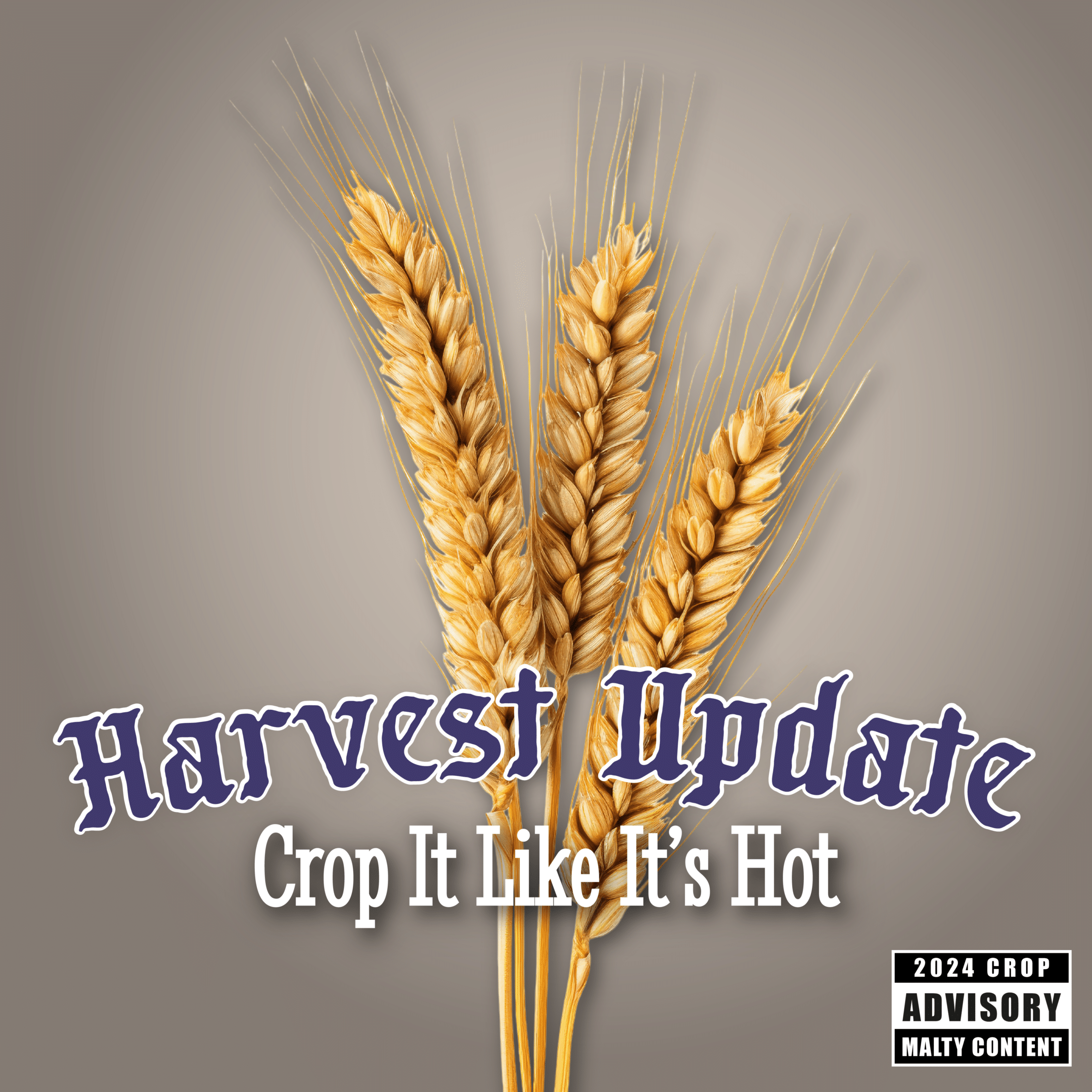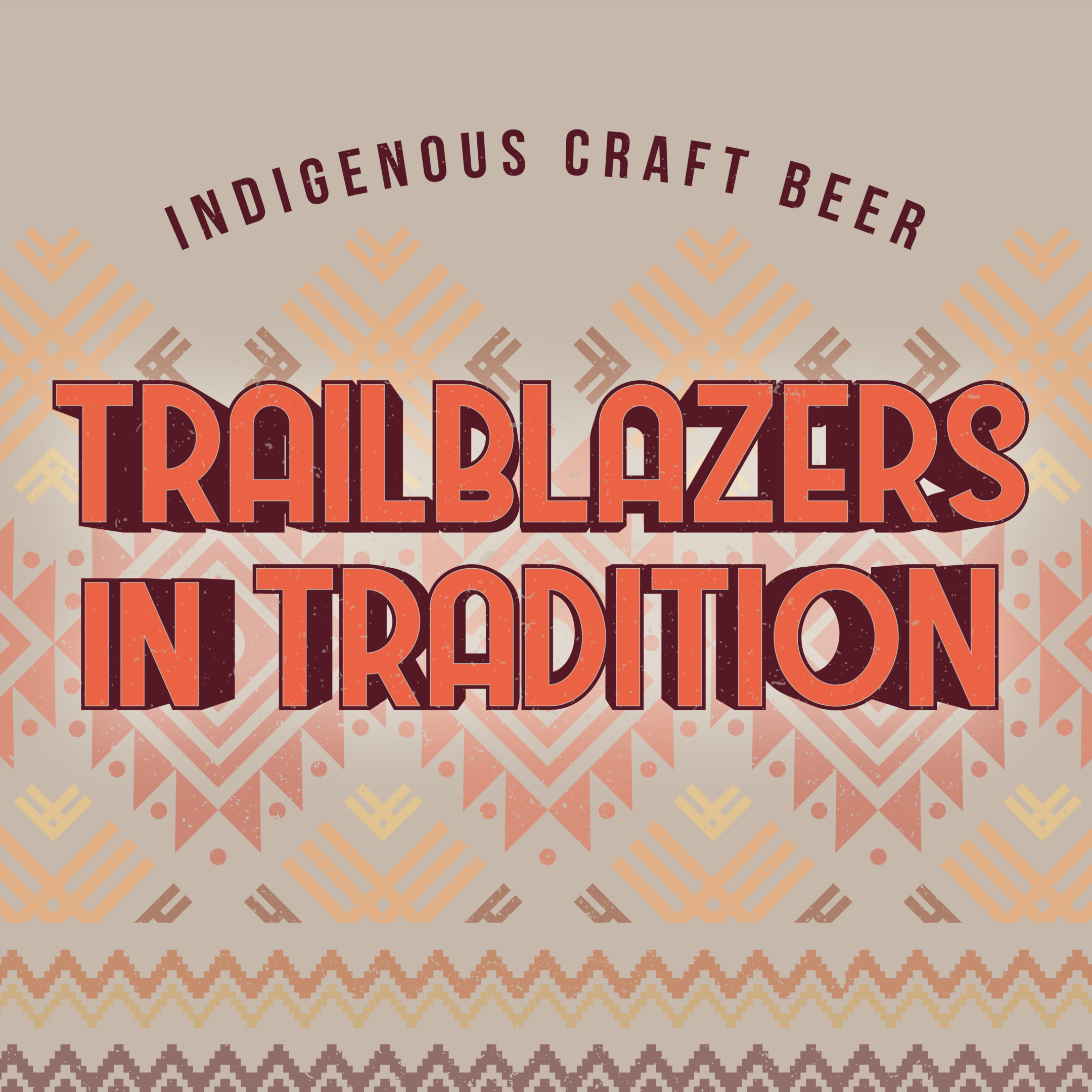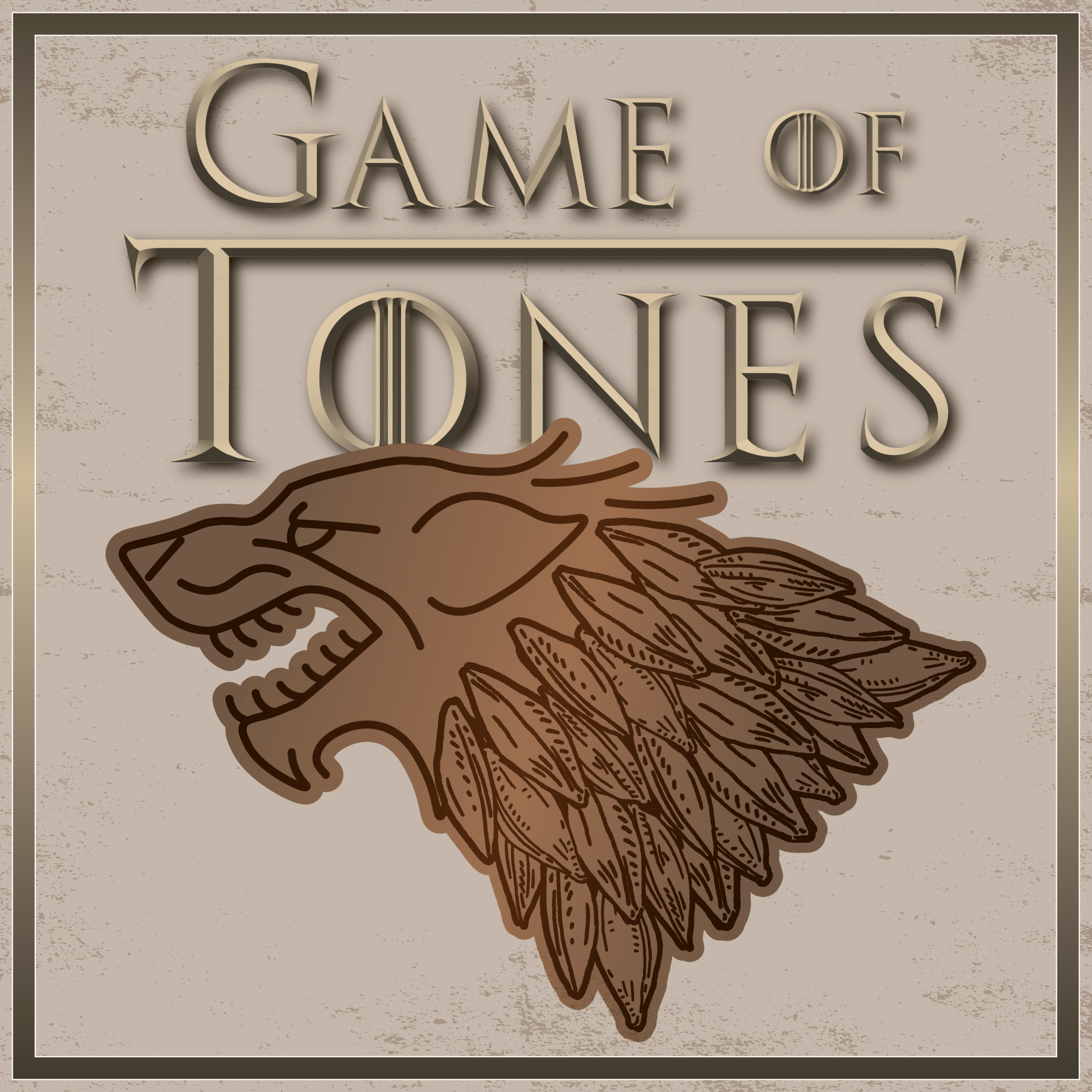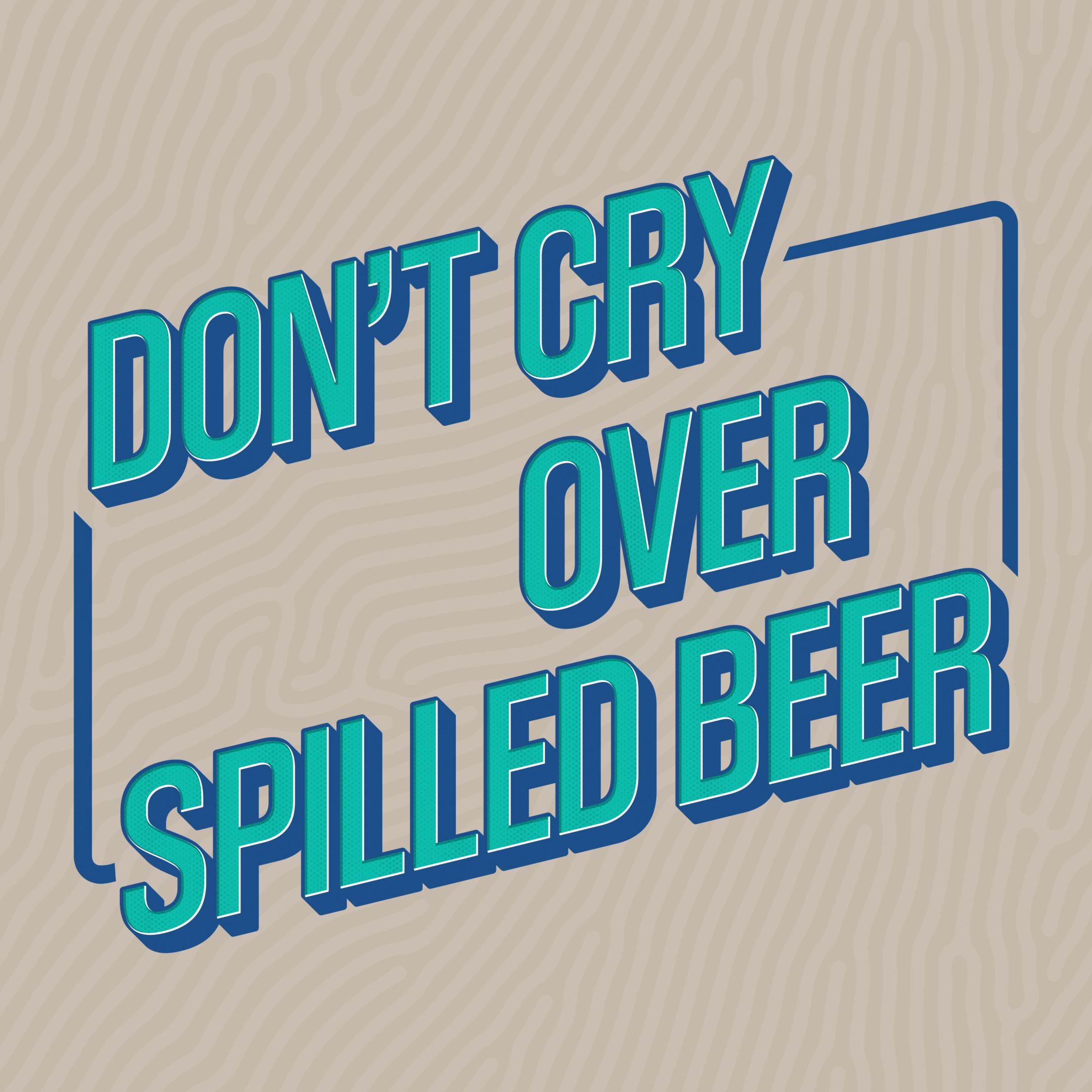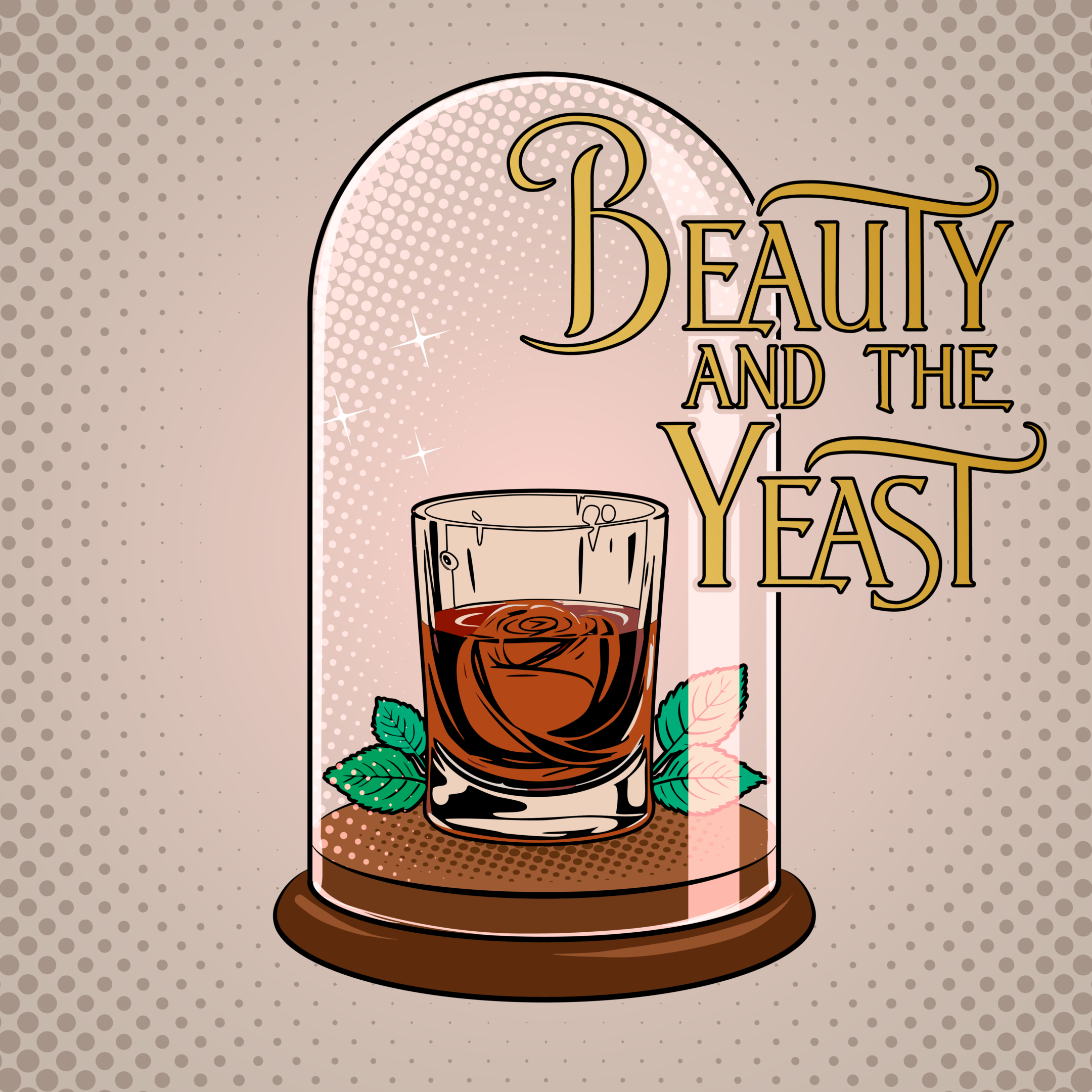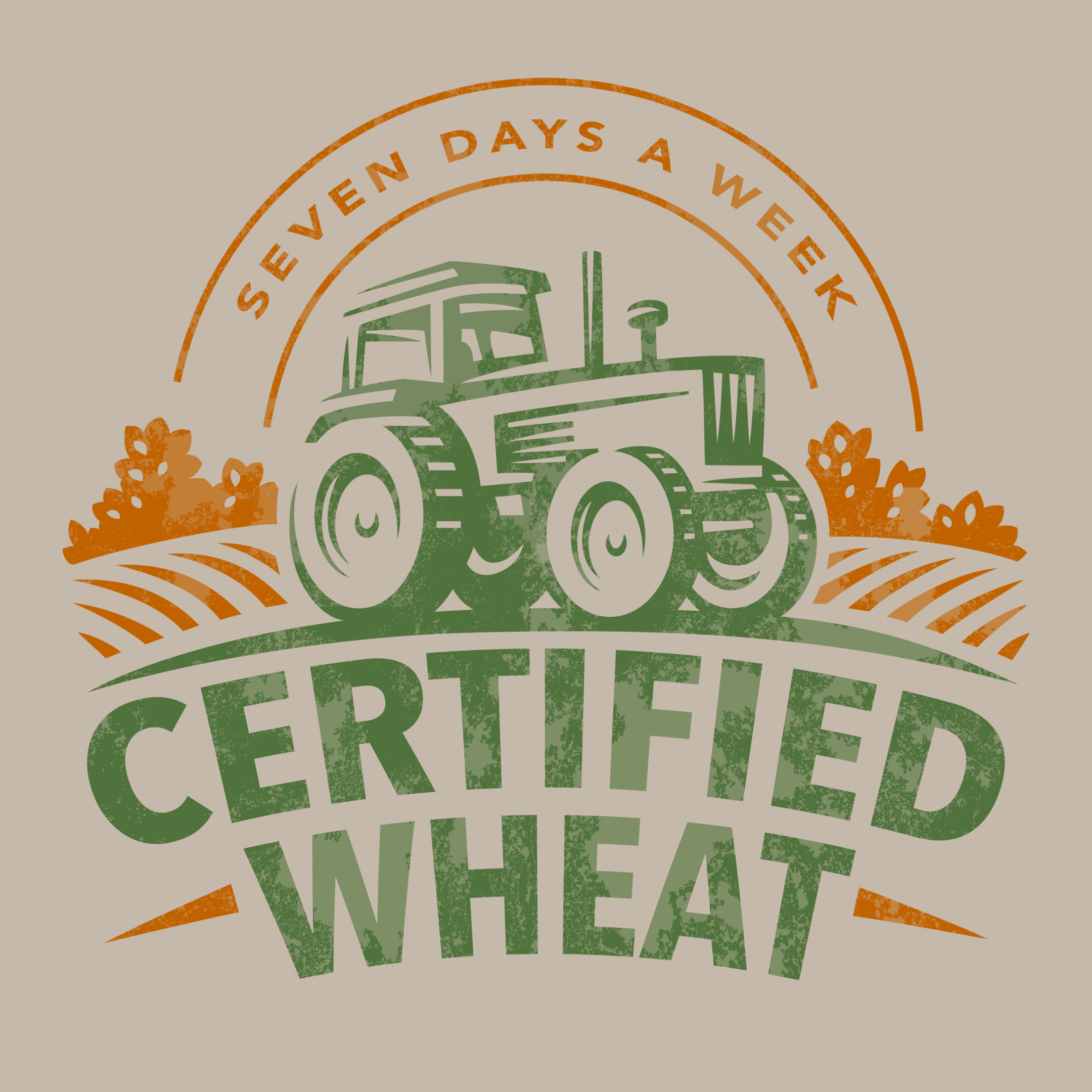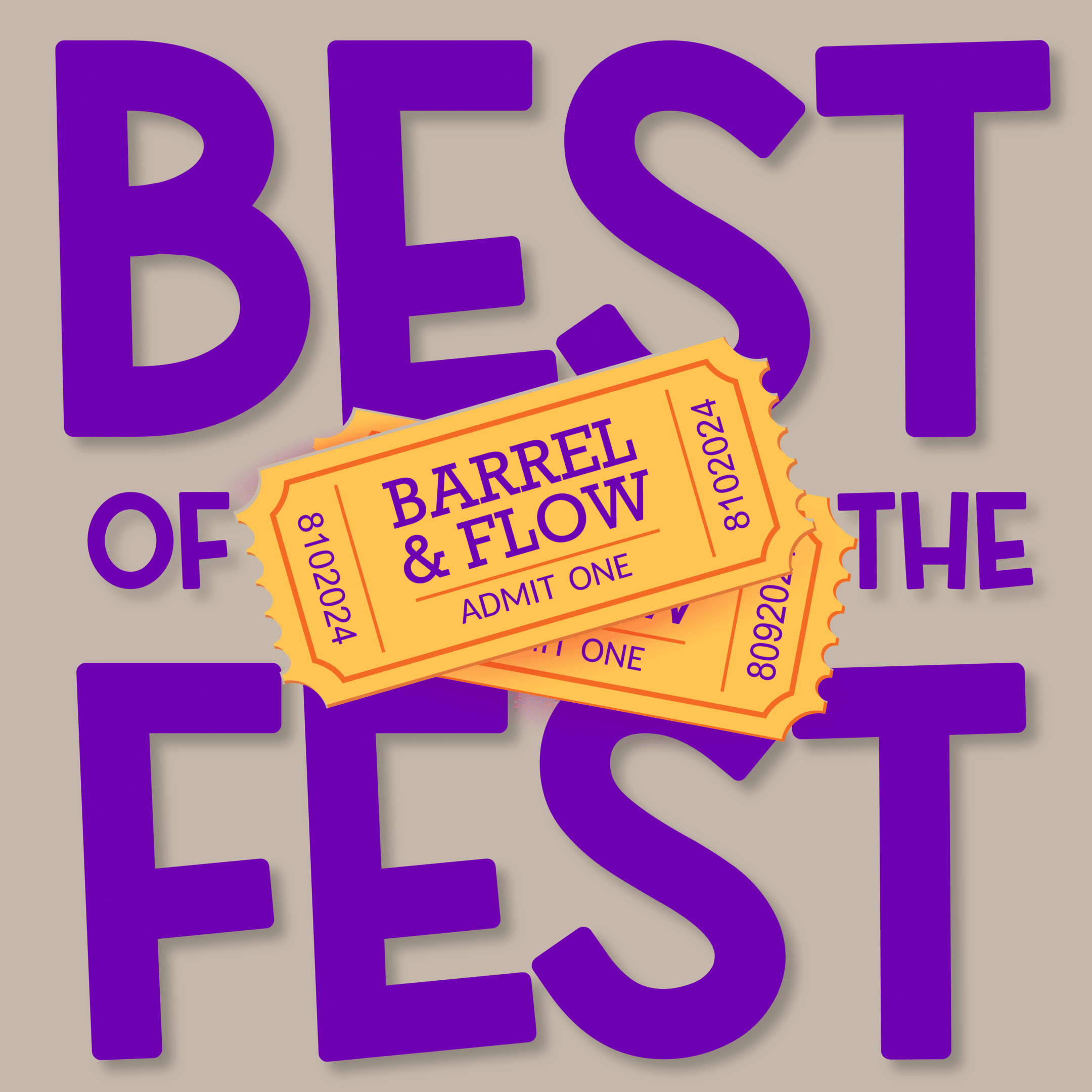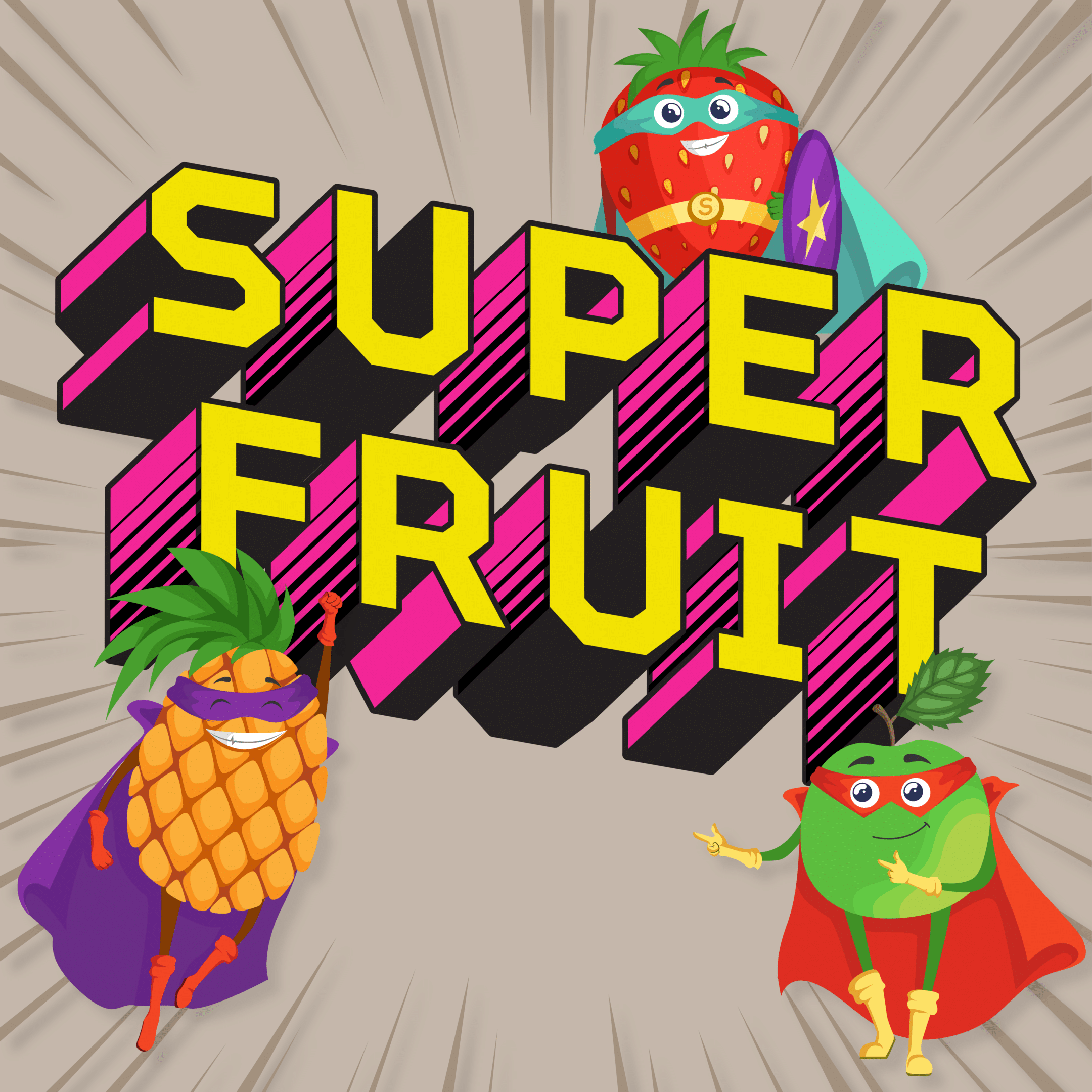
PODCAST GUESTS
Chris Geib

Neil Callaghan

Anthony Derby

Mike Hess
MORE EPISODES
SEASON 2, EPISODE 18: RISING HOPE
PODCAST HOSTS:
TOBY TUCKER – DIRECTOR OF SALES, COUNTRY MALT GROUP
GRANT LAWRENCE – TERRITORY MANAGER, COUNTRY MALT GROUP
GUESTS:
CHRIS GEIB – CHIEF CORPORATE DEVELOPMENT OFFICER, NATIONAL PEDIATRIC CANCER FOUNDATION
NEIL CALLAGHAN – BRAND MANAGER, CIGAR CITY BREWING
ANTHONY DERBY – FOUNDER & CEO, BREW BUS BREWING
MIKE HESS – CHIEF BRAND OFFICER, MIKE HESS BREWING CO.
Key Points From This Episode:
- Charities, Children, and Causes: Beer has a history of bringing people together.
- The National Pediatric Cancer Foundation was started with two moms on a mission.
- Rising Hope IPA: Brewers with beards raise money to create signature beer.
- Goal: Get one brewery in all 50 states to participate and raise donations.
- Can in Hand: Rising Hope IPA directly impacts NPCF and is consistently delicious.
- Expand and Evolve: NCPF wants Rising Hope distributed in local markets/retailers.
- Recipe Label: No barrier to entry for breweries – tweak it to make it fit your market.
Transcript - Rising Hope
EPISODE S.2, E.18
[RISING HOPE]
[00:00:00] TT: Welcome to another episode of The BrewDeck podcast. I’m your host, Toby Tucker, joined once again by my buddy, my partner in crime and sidekick, if you will, Grant Lawrence, our Territory Manager at Country Malt Group down in South Central. How are you doing, Grant?
[00:00:14] GL: I’m doing well, man. I’m excited to talk to some of these folks and hear about some charity beers today.
[00:00:21] TT: Yeah, me too. In preparation, Grant, when you and I were talking about doing this particular podcast episode, emotionally, I got choked up thinking about it.
Grant, you can attest to it. You’ve been in the industry a long time in different roles in the brewing industry. Coming from a completely different industry into brewing—and from our point of view, on our side of it, are the raw materials—is the overwhelming support that the brewing community and those involved in it give to each other and its causes. Granted, everybody’s out there to make a living, but very quickly, I learned coming into it that everybody is helpful to each other. Whether it’s sharing tips and tricks or really lending a helping hand and advice from everybody in the industry, it’s been overwhelming.
We’ve seen it. We can go through lists and lists of brewers that have participated in specific charities or causes and band together because of wildfires, for hurricane relief, or a family member in a bad spot. It’s really awesome to see what people in our industry do day-to-day and the shirt they’ll give off their backs just to make a difference in other people’s lives and other foundations and support other things. For that, I’m very thankful to be in this industry. Grant, I’m sure you feel the same way.
[00:01:45] GL: Absolutely. Beer has always had a history of bringing people together for a cause. Sometimes historically, like war even, getting people around the table. We’re here today to talk about great causes and ones we’re really glad to be a part of here at Country Malt and help sponsor.
[00:02:05] TT: Absolutely. Today, we’re going to talk about Rising Hope, more specifically, the National Pediatric Cancer Foundation that this particular campaign represents. We brought some very seasoned individuals on to talk about the foundation. We’ve got some guests from some breweries that have participated in this particular event or charity.
Let’s just get right to it. The first guest we have is Chris Geib, the Chief Corporate Development Officer at the National Pediatric Cancer Foundation. How are you doing, Chris?
[00:02:37] CG: I’m doing good. How are you doing?
[00:02:39] TT: I’m pretty good. We got Neil Callaghan, the Brand Manager at Cigar City Brewing in Tampa, Florida. Neil, how are you?
[00:02:47] NC: I’m doing outstanding. How about you all?
[00:02:49] TT: Pretty outstanding. Anthony Derby, Founder, and CEO at Brew Bus Brewing in Tampa as well. Anthony?
[00:02:55] AD: I appreciate you having me on. I’m excited to chat.
[00:02:59] TT: And Mike Hess, Proprietor Chief Brewing Officer at Mike Hess Brewing in San Diego. You have several locations in SoCal. How are you doing, Mike?
[00:03:06] MH: I’m doing great. Thanks for letting me be part of this.
[00:03:09] TT: I appreciate you guys joining. Let’s start with Chris. Chris, tell us a little bit about the foundation, and then we’ll go into a little bit about Rising Hope specifically and how it all got started. Tell us a little bit about yourself, what you do, and what the foundation supports.
[00:03:23] CG: Sounds good. I appreciate the introduction and all of you guys being a part of this for multiple years now.
The foundation as a whole was built on the one principle of raising money for cancer research. It’s been around for almost 30 years now. It started here in Tampa, where I am, by two mothers—like how a lot of charity starts, they had kids battling cancer, and they met. They found out the sad thing that everyone finds out where there are just no treatments dedicated to kids. There’s no funding from the government. Only 4% of government funding for cancer goes to pediatric cancer.
They put their heads together and said, “let’s do something about this. Let’s start raising money for research.” It started like any non-profit does, where they did bake sales, dinner parties and started doing a couple of little signature events.
One day, they realized they were raising a good amount of money. They made the mission to donate that money to research, but they wanted to be very particular about how they did it. They didn’t like that hospitals and research institutions generally work in a silo. They wanted to create a collaborative model where multiple research sites and multiple hospitals can work together to help fast track these treatments and these trials to ultimately find a cure for cancer, and while we’re trying to do that, find less toxic, more therapeutic treatments for kids battling cancer.
That’s been the mission for 30 years. It was a Tampa-based, local Florida area charity for the majority of that time until about six, seven years ago where our current CEO came on board with the vision to take this and grow it because we had hospitals from all around the country reaching out that wanted to be a part of it. We just didn’t have the footprint yet.
We added “National” to the name. In a 5-year span, we went from 5 partner hospitals to now close to 30, touching every corner of the country. We’re starting to do some really cool things and raising a lot of money. One thing we’re proud of—and I know why most of you are involved with us—is because the money that we raise goes to the cause. We have ten years running as a four-star charity on Charity Navigator and a 100% fiscal score for transparency and responsibility.
We are a hardworking dollar, and we’re very proud of that. I think that’s why folks like Country Malt, Cigar City, Brew Bus, Hess, and all the others want to be a part of it. Because they know that the job that they’re doing to help raise money for us is going to the right place.
[00:05:47] TT: That’s awesome. It leads us into Rising Hope. Tell us about that—when it started, how it got started, and where we are today.
[00:05:55] CG: When you get over to Anthony, he precedes me on the Rising Hope, so I’ll let him go deeper into how it officially got going. But locally here, we’re doing different events. I know we had an event called Cut & Color. We had some breweries come around that said, hey, we have a bunch of these guys with long beards, so maybe we’ll have a contest between different brewers, see who can raise the most money, and we’ll shave off the beards.
During that interaction, a conversation was had with some of our staff, and the breweries basically said, hey, we make beer. Maybe we can make a beer for you guys as well. That’s when Rising Hope was born. We had a local marketing company help design the logo that we still use today, which is really cool and intricate. If you look deep into it, there are lots of inspirational messages, cancer facts, and everything, but with a really cool, eye-catching design.
That all started, I think 2017 is the first year we had it. For a couple of years, it was just a local release between a collaboration with Cigar City and Brew Bus/Florida Avenue. They sold some retail. They had a taproom release. Anthony did a big Putts & Pints event at his brewery, where he turned the whole place into a putting course, which was awesome. We raised a lot of money just locally.
Then, I came on board in 2019 full-time with the foundation. I was a volunteer committee member for a couple of years prior. One of my first tests was, “Hey, we have this program called Brewing Funds the Cure. We have a great partnership with Cigar City and Brew Bus, but we are a national non-profit, so let’s make this national.”
Luckily, there were a lot of ties with Country Malt Group, Cigar City, and Brew Bus, with some former employees like Chris Lovett, who helped brainchild this program. He moved over to Country Malt. I was able to link up with him and the folks from Yakima Chief Hops.
We put our heads together at the Craft Brewers Conference in 2019. I basically asked nicely, if you donate a product to Florida, would you donate enough product for every state to have one brewery represent Rising Hope? They thought about it. I’m sure the accounting department had some questions. They came back and said, yeah, let’s do this. That’s how it started.
We threw a program together in May of 2019 and were able to recruit 23 breweries that the first year at the last minute. Then, going into 2020, we were all excited. All the partners were excited about getting get all 50 states. Of course, right when we started recruiting, the world shut down. We were last minute again last year, and we ended up with 34 breweries onboard.
Even through COVID, their breweries weren’t even open, but they still want to be a part of it. They were able to scan a bunch of beer and sell it retail or sell it curbside until the breweries could open.
That leads us to where we are now. Our goal this year is to finalize, really get all 50 states, and have one brewery in every state on board this year. Whether they can do a 5-barrel run, 20, 60, or whatever they want to do, we just want to have a representative from every state.
In two years from expanding nationwide, we have raised over $330,000 between 2019 and 2020. I think we can continue to grow it from there.
[00:09:08] TT: It’s awesome. Really good stuff. We’ve enjoyed participating with you guys. Anthony, it sounds like you’re the brainchild behind this. Was everything accurate there? By the way, he didn’t ask Country Malt Group for a donation. I think he came in with axes and swords and demanded it. He went hard to twist our own, and we definitely wanted to get into it.
[00:09:28] AD: Knowing Chris, I don’t doubt that 100%. He’s a warrior definitely for the foundation and the charity overall.
The gist of it was pretty much there. Justin Clark, with Cigar City and I, actually approached the National Pediatric Cancer Foundation separately. We both wanted to do something in our own different ballpark. Dave Frazer, the CEO of the National Pediatric Cancer Foundation, basically reached out to us and was like, hey, you guys both want to do separate things. What if we combine them or think about something new?
We got us all at the table, and that’s when we met with the marketing firm, thought about some ideas, and became this back and forth brewing schedule between Cigar City and us for the first few years. We got Wayne Wambles and our brewmaster, Kevin Butler, together on numerous meetings, going back and forth on recipes, and just evolved every year from there.
It’s been awesome to see the expansion. What you guys were talking about earlier—the brewing community’s involvement in non-profit and just community outreach in general—is definitely why I got started in the industry.
Dating back, my mom was the President of Cigar City during the time that we actually formulated Rising Hope. My office was run out of there. We had a lot of really close connections to Cigar City. I think that’s what spearheaded this, too, is Justin and I didn’t even know we were asking independently of each other and came together on it.
[00:10:53] TT: It’s awesome. Maybe more of a question for Chris. I don’t know if you can talk about it, but how much money has been raised through Rising Hope in the participation of breweries over the last several years?
[00:11:05] CG: The year before I came, 2018, between Cigar City and Brew Bus combined with the Putts & Pints, I think it was a $30,000 something initiative just here in Florida. Then 2019, the first year, we had 23 states participate in Rising Hope. It was roughly about $125,000 raised for the foundation. Then last year, we’re up to 34 states, and it was over $200,000.
If we get all 50 states onboard, if every state did the full allotment of ingredients with the 20 barrels, and we have all 50 states, we could easily be talking about a $500,000–$1 million program as it continues to grow.
[00:11:48] TT: That’s great. We will call out; I’m sure at some point in the show today which states are lagging. So if some listeners out there want to participate, we’ll certainly welcome you with open arms. That’s for sure.
[00:12:00] GL: Pretty neat. We’ve been getting closer year after year. This is the best year. We’re almost there. We can get all of them this year. It’s possible.
[00:12:10] TT: Absolutely. Let’s jump over to Mike. Mike, I know you obviously have some personal history with pediatric cancer, and obviously, a story there that I think deserves to be shared. You are a huge participant in anything and all things National Pediatric Cancer Foundation. I know you brew large batches every year to help support Rising Hope.
[00:12:32] MH: Yeah. We’re not doing as much this year as we did last year, but we were still doing 66 barrels this year. We’ll put 200 cases out, and we’ll sell those all throughout retail locations in about 40 barrels into kegs.
We had a great opportunity last year with Costcos in San Diego, where they picked up the brand. We sold 1500 cases through Costco. In Costco, the wholesale price of them was $20. We donated 100%. We put a $30,000 check into NPCF’s stance for all of the beer that we sold through Costco. A hundred percent of those proceeds went through there. Plus, we did some drafts in our tasting rooms as well.
I would like to thank John Eagan for reaching out. He was the first guy that contacted me about that. Of course, the answer was, yes; we’ll participate. I love hearing these big numbers; these $200,000, $500,000 potential raises because I think that there are a lot of breweries who are doing great work in the philanthropic space, and there are a lot of brewers that are doing a lot better in the philanthropic space.
I’ve been talking about this for the last couple of years. We were all brought into this idea, especially when we were a small brewery. We’ve started out as the smallest in San Diego that we would do buck-a-pint night and stuff like that, and we’d raise a couple of $100.
We really, as brewers, have an opportunity to gather people around great causes. Our purpose statement is bringing people together over great beer around great causes. We try to live that every day, but I think that we can do a much better job as breweries in all of them in raising significant amounts of money. Not just your $300, $ 400-pint night type thing, but writing big checks and really making an impact on organizations, especially on diseases like pediatric cancer that cost so much.
The research and development, the cost of standing up a lab, paying for scientists, all the materials that they use, and essentially just paying for their brainpower to work are not inexpensive undertakings. The lab costs probably six figures just to get into it and get going.
It’s really awesome that this program, Rising Hope, raises so much money because it’s actually funding meaningful research.
[00:14:47] TT: Absolutely. Neil, Cigar City, is this something you look forward to every year?
[00:14:52] NC: Yeah. Most certainly. This is something that not only internally as a staff we look forward to, but consumers. People in the taproom look forward to Rising Hope every single year.
Like Anthony was talking about, we’ve alternated brewing the beer as a collaboration between Cigar City Brewing and Brew Bus for the last few years. Whether it’s brewed at Cigar City or whether it’s brewed at Brew Bus, people in the Cigar City taproom ask about it every single year. People are always excited about it coming out.
Not only is the beer consistently delicious—which is awesome. I think it’s a testament to our brewmaster, Wayne, and the Brew Bus brewmaster, Kevin. Their collective vision for fruited IPAs is pretty awesome. That’s just the cost of entry. That gets people excited. Then, when they find out the story behind Rising Hope and our partnership with NPCF, people really latch onto it because it’s meaningful. It’s something that whether it’s not us personally, we’re all impacted by pediatric cancer and whether it’s one or two degrees separated.
It’s something that our consumers latch onto. It’s something that our staff latches onto because they get excited coming to work and brewing something that they know is going to have a direct impact on research and on these kids’ lives. It’s something that we look forward to as a staff. It’s something that consumers look forward to. Just me personally, I’m looking forward to trying this year’s batch once we get everything going with Brew Bus.
To have that can in hand and be drinking it knowing that it is directly impacting a phenomenal organization like NPCF is pretty phenomenal.
[00:16:24] TT: This might be a question for Anthony and maybe even Mike. I think a lot of times, for newer folks to the industry, one of the things that might hold them back from being more philanthropic is the difficulty. How much time is it going to take me? What’s it going to take out of my brew day, et cetera? But for Rising Hope specifically, you guys make it really easy. How do you come up with the recipe formulation? What is the process or what can be expected for some of those brewers that want to participate?
[00:16:55] AD: We try to make it as packaged as possible. As you said, some people, if they’re too creative in their own ways, sometimes that can get in the way of things. Everything that we’ve done for the package—the art label, the cans, obviously having great vendors like Country Malt and Yakima Chief, and helping source all that stuff to make it as streamlined as possible to get people onboard—was step number one, which I think we’ve achieved.
But we’ve also let it be to where if someone has a specific style or high-profile they want to achieve for their customers, they can deviate from that as well.
Every year, usually around March, Kevin, Wayne, and I will get together and go back and forth on what’s available from our vendors and pick the best of the best to try to excite obviously, the consumers and, like Neil said, our staff as well. There’s only so much highlight for Cigar City or for us, […]. There’s only so much beer that they want to make, so when they get something different and unique that they can do and be a part of, that excites them.
I know the initial part for us is just taking that plunge. It’s like, all right, we know for that one brew day, we’re going to have to dedicate to the National Pediatric Cancer Foundation. I think once you get over that, especially as a small brewery, your brewers are pretty much going to be there whether you’re brewing something or not. I am just getting over that hurdle of dedicating that labor.
Then the rest, we try to make it as easy as possible with all of our partners who donate the ingredients and raw materials. We want to expand it even more into having retail partnerships and even the selling aspect of it to try to streamline that as well.
[00:18:38] TT: Maybe this is a question for Chris. If there are breweries that are out there that want to participate and don’t necessarily or can’t necessarily contribute by brewing the Rising Hope beer, are there other ways that they can get involved with NPCF?
[00:18:52] CG: Yeah, there is. This Rising Hope program is definitely an exclusive flagship program for Brewing Funds the Cure. We intentionally are making it exclusive to one release place like Florida, Indiana, I know this year in Maine, and a couple of others.
It’s two breweries coming together to where they can alternate every other year of who’s actually brewing it, but then collaboratively, they are actually spreading more awareness between the two breweries by releasing it at the same time together.
We wanted that one release per state because the overall vision of this is right now, we have our budget of 20 barrels, then if we max out the states and max out the barrels, maybe it goes to 40 barrels or 60 barrel budgets. Now we’re really canning and distributing throughout every state. If we keep it at one brewery per state, then it’s obviously a whole lot cleaner and easier for the distribution side.
So the 5-year goal and the 10-year goal is to have Rising Hope, the major supermarkets, and all the local retailers with one brewery per state doing it.
We get people asking all the time—we’re here in Florida, so obviously, I’ve worked with a bunch of them—and they’re always like, hey, can we do Rising Hope? Unfortunately, a big part of our program is, hey, you have the right of refusal if you’re our Rising Hope brewery for next year. For everyone else, we wanted to create opportunities as well, so they can do anything they want.
I tried to make it as streamlined and easy as possible when I send it with the partner packets where it’s a 1-2-3 step type of thing because I don’t want to take any more time from the breweries to create anything.
So we’ve created a tap handle program, where it’s just what it is when we’re talking about the dollar a pint type of thing, where any brewery can say, hey, we can’t do the Rising Hope. But we can put your tap handle on our core brand beer for a month and give $1 a beer, or they can host a trivia night, they can just do a raffle for a month, or whatever they want to do. We want to continue growing to where any brewery at any time can do it. We’ll keep creating ways to get them involved and have a packaged program for them. We’re continuing to grow that every day.
[00:21:05] NC: All the effort that Chris and his team have put together to really making this sort of a plug and play operation where you’ve got a recipe that’s built by Cigar City and Brew Bus, you’ve got the raw materials coming from raw mat suppliers that every brewer in the world knows—Country Malt, Yakima Chief, and Amoretti.
To be a part of an initiative where you’ve got not only Cigar City and Brew Bus, but you’ve got internationally known breweries like Mike Hess, Trillium, and Deep Ellum down in Texas. To me, this makes all the sense in the world for any brewery to want to be a part of in any capacity. It’s an organization and an initiative that has the effort of Cigar City and Brew Bus, but it also has the effort of these internationally recognized breweries and raw material suppliers, and everything’s pretty much buttoned up. Whether it’s the artwork, the recipe, or the tap handle, to me, it’s kind of a no-brainer.
[00:21:58] MH: I’ll second that. I mean, for us, it’s easy. We do a little bit of tweaking on the recipe. I thought last year, the only thing we were doing was styling out a little bit of the fruit because we just don’t want an over fruited for our marketplace. That’s one of the things that says right on the recipe card; tweak it to make it fit your market. But having all of that other work done for us—the label—essentially just gets in there for the state of California to make it legal. We put our logo on there, put […] on there, so we can sell it. There really is no barrier to entry.
Going back to this point about breweries wanting to be philanthropic, here’s a way we can be philanthropic in a big significant way, and very, very low cost. It’s essentially the cost of your labor for the man-hours it takes to get it through the cattle into the fermenter, from the fermenter into whatever you’re serving in from, and that’s it. Amoretti, Country Malt, and Yakima just make it so easy. Even for us when we’re doing more than 20 barrels a day, hey, want to do 66, and a couple of emails later, we’ve got ingredients for all that.
There’s really no barrier to any other brewery jumping on this, and it just fits into the whole gestalt of what the craft brewing community is all about, which is doing great things out there in their community.
[00:23:07] TT: Very much spot on. We actually could jump in. Chris, what states are we shy of? By the time this podcast is released, we may have picked up a few, though. Is there a particular area that we need some help with as far as participating breweries?
[00:23:22] CG: It’s pretty fluid. Even in the states that we don’t have finalized, we have a lot of maybes. So we’re trying to nail them down between me, representatives from Country Malt, or representatives from Yakima Chief or Amoretti. They’re all helping to recruit. I’m not sure if this podcast is coming out before the Craft Brewers Conference. But I’ll be there at a booth for the Brewing Funds the Cure with the list of the remaining states needed. By next week, I’ll have that list. We’ll have a big map with pins of every brewery that has already signed up.
Hopefully, some of the brewers that are walking around the craft brewers conference—I’ll let the guys from Country Malt, Yakima Chief, and all of our other partners, tap handles, and everyone else—make sure people come to our booth as well to sign them up.
I know states like Idaho, New Mexico, Kentucky, West Virginia, and a few others are still kind of lacking. I think we’re about 40 right now, like pretty solid. There are a few maybes in there and a few follow-ups that I need to do. But I’m pretty confident that we’re going to come really, really close, if not hit all 50 states. The next two weeks, from the recording of this podcast through the Craft Brewers Conference, it’s definitely going to be exciting. That’s my main goal.
I know Chris Lovett from Country Malt has really taken it upon himself to push it out there. That’s his goal too. We don’t have a number of what we want from a financial contribution. Let’s get it to 50 states, and then the numbers will come obviously from there.
[00:24:52] GL: Absolutely. I think we can definitely meet that goal of all 50 states here in the next few weeks. Good to know you’re going to be at CBC. Toby and I will be there as well. We could continue to make the push. I want to talk a little bit more about the beer recipe while I’ve got everybody here. Was that you, Anthony, who developed that along with Cigar City?
[00:25:14] AD: Definitely not me; I can’t take credit for that. I’m definitely more on the business marketing side of things. But our two brewers kind of came together—Wayne and Kevin. They really hash that out. Especially this past year, Wayne and Kevin did multiple Zoom meetings and samples of products, et cetera, to develop the recipe.
I know from the beginning, though, fruited IPAs for us, specifically here in Florida, was always the style we wanted to go after. That just kind of kicked things off in that direction. But as Mike says and other breweries have done, we tweaked it to be more conducive to their market in their environment. Neil, Chris, you guys might be able to talk about the recipe a little bit more than I could.
[00:25:56] NC: Yeah. I’ve been lucky enough to see the recipe and watch it evolve over the last couple of months. If anybody who’s listening has ever dealt with Wayne Wambles, our brewmaster, they know he’s pedantic (might be a kind word for it). He’s so detail-focused that if there’s any little variable or any little nuance in this recipe, he has thought it out—mash pH kettle pH, all that stuff. I’ve heard 15 email thread-long conversations about simply just the pH of the word in the kettle. This is stuff that obviously has been thought of.
To me, the most exciting thing about this year’s recipe is the fruit addition—that’s the POG, passion fruit, orange, and guava. In the past, we’ve dealt with a couple of different fruit combinations. That’s all that stuff again, I know there’s been a lot of thought and a lot of care that’s gone into selecting those fruits, and that goes with the partners with Amoretti.
Having a POG combo this year, we’ve all seen a number of beers out in the market that is using that combination of fruits. It’s something that consumers are excited about. It’s something that brewers know works in combination with the hops that Yakima Chief has put forth for this initiative. So it makes all the sense in the world, but the recipe is pretty solid.
Like Mike was talking about earlier, it allows for some interpretation. Mike Hess’ version of this beer is going to taste different than the Cigar City and Brew Bus version of this beer, and that’s going to taste different than the Trillium version. It does allow for some interpretation, but still with that essence of it, the heart and soul of it being this recipe.
[00:27:27] GL: It’s a great point about the different interpretations. In the past, the Resilience IPA that went around was really awesome going around and trying everybody’s different versions of it. It’s the same with Rising Hope’s beer. I’ve seen the recipe become more polished over the years. I’m really stoked about trying this one with the POG, as you say.
[00:27:49] TT: This podcast is available to anyone, but I think a lot of our listeners are brewers. But we do have some consumers that dial in as well. For those that want to give this a try, is it just a release dependent on the brewer like Mike? When can folks expect to come to try some of this beer at your place, or even buy a 6-er or 12-er up at a Costco?
[00:28:10] MH: We’re packaging it all on Monday. We’re selling it all through retail. So I think somebody mentioned early on, we have five locations in the state of California that are big retail outlets. We sell a lot of beer through our taprooms and brewery locations. We’re going to sell all of that. All 66 barrels will go out across the counter, either in a case or in draft starting on Monday.
[00:28:35] TT: That’s awesome. Neil, what about you guys? Do you know?
[00:28:37] NC: We’re in the process of finalizing those details. We’re hoping for late October for this stuff to be on the shelves. Depending on some factors, you will likely either end up at the Cigar City taproom or the Brew Bus taproom in Tampa to get your hands on this. We want to scale this initiative up as much as possible. We also want people to be anxious. We want them to be literally and figuratively salivating to get their hands on this beer. You’ll likely have to come either to the Cigar City taproom or the Brew Bus taproom to get your hands on this. We’re really looking forward to sharing our version with consumers.
[00:29:15] CG: Yeah, I’ll piggyback off of that too. If you go to our website, nationalpcf.org, or just go straight to brewingfundsthecure.org, we’ll have a map on there updated in the next few days with the current partners for this year. I think there are still last year’s partners there. But we’ll have that updated soon.
Then we have all of our normal social channels. We created a @brewingfundsthecure Instagram handle. We can’t really talk beer 100% of the time on that normal Pediatric Cancer page. I wanted to create a way where we can highlight all of our partners and all of our breweries all the time there.
Starting this week, as soon as I start getting dates on taproom releases and everything like that from all (knock on wood) 50 Brewery partners, then we’ll be doing posts and letting everyone know when it will be released. I think Mike will be the first one next week. Then there are a few others the week after and then the week after. Pretty much every week through September and October, we’ll have multiple breweries releasing the beer in their various communities, whether it’s just in the taproom or throughout the community with restaurant partners and retail partners.
Definitely check out Instagram, @brewingfundsthecure. Check out our website because the map will continually be updated, and we’ll continue to update all of our partners as long as I have the information.
[00:30:35] NC: I just want to thank everybody who’s been on this call and everybody who has been involved in this initiative. You guys mentioned a couple of times, Chris Lovett was a huge force in helping realize and give shape to this initiative that we all feel very passionately about. He was also behind that Cup for the Cure event that Chris had mentioned earlier.
There’s a number of different initiatives where people cut their hair or shave their head in support of folks who are dealing with cancer. To do something that’s really different like that, where we’re all shaving our beards, I thought it’s a really interesting, exciting way to put the brewing industry spin on a great initiative like that.
Unfortunately, I don’t think they actually took the beard clippings and made a fake beard and handed them out to kids necessarily, but hey, look, that’s something we could look to in the future. If there are kids walking around with fake beards because of an initiative like that, I’m all for it.
[00:31:29] TT: Like chunks of leftover lunch stuck in there still, and a part of the brewer’s pint from the night before smells like an IPA.
[00:31:37] NC: Hey, Toby. That’s called authenticity.
[00:31:39] TT: Right.
[00:31:40] AD: It’s just what we want, the six- and seven-year-olds interacting with.
[00:31:46] MH: If I can add something else to this discussion as well, for breweries that are participating, this gives an opportunity to talk about also why this is important. There are lots of things that need lots of money for research, right? People are always funding research for all kinds of diseases out there. One thing that we stress at the brewery and again because you mentioned we have a personal connection to it—our middle daughter was diagnosed with osteosarcoma in the fall of 2018.
When we were going through the treatment with Keeley, when we met with the oncology team and the surgical team and talked with them about what was next, like, okay, what do we do? They described the treatment to us. They said that they’ve got a long track record with this treatment, and it’s reasonably successful.
Osteosarcoma is actually a very aggressive cancer. This was the treatment, and they mentioned that the treatment was the same and has been the same for 35 years. There have been zero advances. There’s no new chemotherapy. There are no new therapies at all. There’s no treatment other than the surgical recession of the tumor. Literally, if you had osteosarcoma 35 years ago, the only thing that would be different was if they would put the surgery in a different spot in your year-long treatment.
As my family and our friends are looking into this whole world of pediatric cancer, pediatric cancer has many, many, many subtypes. Osteosarcoma is just one; obviously, leukemia is another one. That’s more common than you hear about.
Of the federal budget that goes towards cancer research for all cancer types—breast cancer, brain cancer, prostate—pediatric cancer is lumped up in one category. It only gets all the subtypes combined and only gets 4% of that federal budget. This is what the folks or NPCF are doing or the other organizations that are solely focused on pediatric cancer research. Why is what they’re doing so important?
Because this is an area of research that desperately needs funding, you look at breast cancer—breast cancer gets billions of dollars a year, which is great. I hope they find a cure. But pediatric cancer subtypes don’t. They’re getting short-shifted, and there’s not a lot of money into it for biotech and biopharma. It doesn’t affect as many people. Even though when a kid gets cancer, the whole family gets affected. The extended family—the grandparents, the siblings are affected, and certainly parents.
This Rising Hope gives an opportunity for us as brewers to just share information also about why we’re doing this. Why are we raising? We’re not just raising money for research for pediatric cancer because that’s a good thing. But also because this is a severely underfunded area of the market.
[00:34:37] TT: Very well said, Mike. Very well said. Okay, final thoughts, Chris?
[00:34:42] CG: This podcast with the five or six of us on here. I look at this, and it’s really special to me of the people that are on here. Anthony, then Neil from Cigar City, without you guys thinking of this—the Christ Lovetts and Country Malt getting involved way back when—we wouldn’t have this right here. You guys allow me to take this idea that I was thrown into and talk with our local partners here and, on a whim, just asking if you would do it across the country.
I know Toby was at that meeting at the Craft Brewers Conference in 2019. I just asked, and there really was a quick answer from you guys. I wasn’t asking for money. I wasn’t asking for anything else. I just said it is a big ask. I know it’s a lot of raw materials, but I really think we can do something special. For you guys to do it and bring in the outcome achieved. When Mike came on board last year, he brought in Amoretti for us. I know he had worked with them. We got 100% donated products from the hops and the malt.
We didn’t have it from the fruit the first year. So Mike said, hey, why don’t you call my friend at Amoretti. I talked to her for 30 minutes and told her how much I needed. She wrote up the numbers and gave me the figure of how much that was worth, which is a lot more than I thought it would be. She did not blink an eye, and she said, we want to be a part of this. On top of that, the tap handles are donated. This year, we have labels donated.
We keep getting more and more national and international companies that want to get involved because of the cause and because of the brewing community. Like you said before, in my industry doing non-profit, I deal with a lot of different companies, organizations, and industries. I agree with everything you said. We at Brewing Funds the Cure, I look at this program as we are a part of the brewing industry.
When last year was scary for everyone, and breweries were shutting down and didn’t know if they’d be able to open their doors. I felt that as a part of it because I feel like our program— while we’re raising money for research—I feel like we’re just as much a part of the brewing industry as a brewery, allied partner, or ingredient partner. So I really feel it.
I just want to thank everybody here. You guys are the core; adding a few others to it, that really helped us go. I know I put a lot of hard work into it. I know you guys put a whole lot of hard work into it behind the scenes too. I just want to thank you guys for having me on and being a part of this.
[00:37:10] TT: Sure thing, Chris. I appreciate all the work that you do day-to-day, your participation in Rising Hope, and National Pediatric Cancer Foundation.
Hey, I really appreciate everybody’s time today. I know everybody’s got a busy schedule. Chris Geib, obviously, thank you. Neil Callaghan, brand manager for Cigar City Brewing, thank you. Anthony Derby and Brew Bus, thanks. And Mike Hess, thanks so much for joining us. I appreciate it.
For brewers out there that want to participate, certainly reach out to your rep at Country Malt. They will stir you in the right direction, or Yakima Chief for that matter.
For the consumers, look out for it on the shelves. If you particularly want to know what or where you can try one of these beers brewed by a brewery there in your locale, take a look at the website, find out where they are, and go support.
Hey guys, I really appreciate everybody’s time. Make it a fantastic week. Those listeners out there, catch us next time on our podcast. Have a great weekend. Thanks, guys. Cheers.
[00:38:10] AD: Thanks, everybody.
[00:38:11] MH: Thank you. Cheers.
[00:38:13] CG: Cheers. Thanks, guys.
[END]

